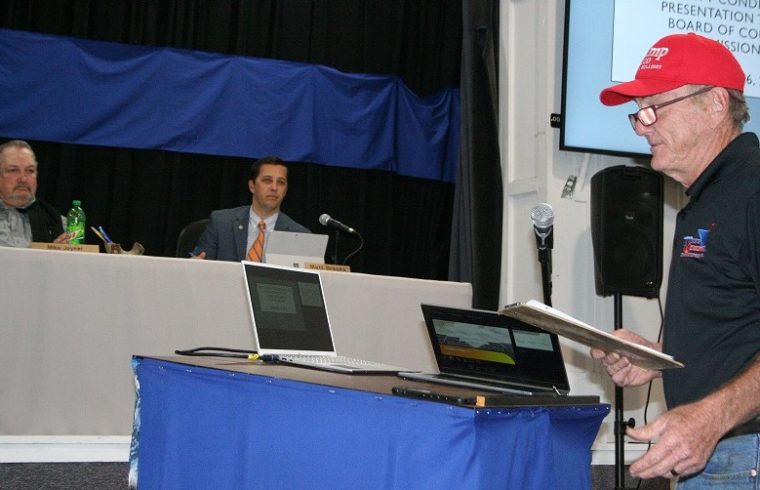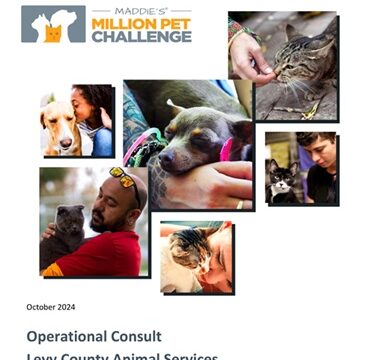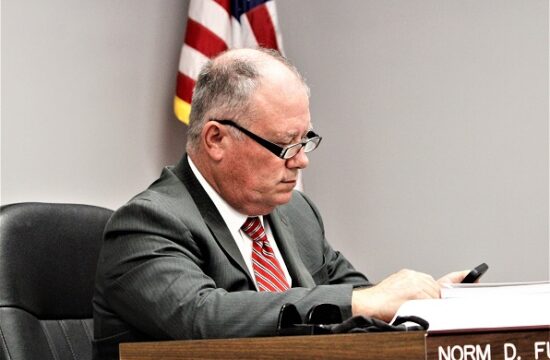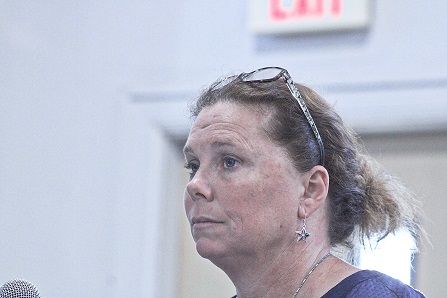By Terry Witt – Spotlight Senior Reporter
Levy County has been officially declared a sanctuary for the protection of rights provided by the Constitution of the United States and the Constitution of the State of Florida.
Levy County Commissioners unanimously adopted a proclamation on Feb. 16 promising to uphold the constitution and the constitutional rights of the county’s citizens in the performance of their official duties.
The proclamation states that the Board opposes the adoption of laws, ordinances, rules, regulations, restrictions, and other governmental actions that unlawfully infringe upon the rights secured by the two Constitutions.
It cites four constitutional liberties that appear to be in jeopardy.
“Many rights of said Constitutions, especially those contained in the First, Second, Fourth and Tenth Amendments of the Constitution of the United States, and in Article 1 of the Constitution of the State of Florida appear to be in jeopardy at this particular time in our country’s history,” the proclamation states.
The proclamation goes on to state:
“The Board encourages and requests that all County departments and officers uphold any of their oaths and take due cares at all times, whether during a state of emergency or otherwise, not to infringe upon the rights and liberties of the persons and individuals of Levy County as stated in the Constitution of the United States and Constitution of the State of Florida.”
Duane Schwingel, a Levy County resident for 22 years, made an appearance at the Feb. 16 board meeting to request an ordinance declaring Levy County to be a “Constitutional Rights Sanctuary County.” He said he believes the United States, and Florida as a state, should have “limited self-government like we have in this county.”
The county’s proclamation falls short of the ordinance Schwingel requested. The county’s proclamation isn’t an ordinance. It does commit the county in writing to protecting the constitutional rights of its citizens and honoring the Florida Constitution and U.S. Constitution.
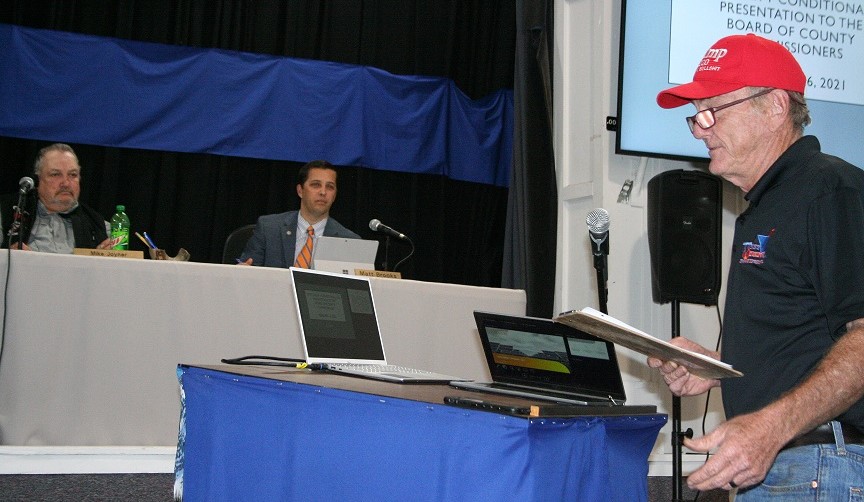
Schwingel presented a proposed ordinance to commissioners citing the four constitutional amendments to the U.S. Constitution he believes to be in jeopardy. The county commission’s proclamation borrowed some of the language in Schwingel’s ordinance. The four constitutional amendments cited in his ordinance and in the county’s proclamation are:
First Amendment – Congress shall make no law respecting an establishment of religion, or prohibiting the free exercise thereof; or abridging the freedom of speech, or of the press, or the right of people peacefully to assemble; and to petition the Government for a redress of grievances.
Second Amendment – A well-regulated militia, being necessary to the security of a free State, the right of the people to keep and bear Arms shall not be infringed.
Fourth Amendment – The right of the people to be secure in their persons, houses, papers, and effects, against unreasonable searches and seizures, shall not be violated, and no Warrants shall issue, but upon probable cause, supported by Oath or affirmation, and particularly describing the place to be searched, and the persons or things to be seized.
Tenth Amendment – The powers not delegated to the United States by the Constitution, nor prohibited by it to the States, are reserved to the States respectively, or to the people.
Schwingel’s ordinance cited four sections of the Florida Constitution that may be in jeopardy. They are Sections 1-4. The county proclamation specifically mentions Article 1 of the state constitution as appearing to be in jeopardy, not the four sections quoted in Schwingel’s ordinance.
Article 1 is the preamble to the Florida Constitution which states, “We, the people of the State of Florida, being grateful to Almighty God for our constitutional liberty, in order to secure its benefits, perfect our government, insure domestic tranquility, maintain public order, and guarantee equal civil and political rights to all, do ordain and establish this constitution.”
The following are the four sections of the Florida Constitution cited in Schwingel’s ordinance:
Section 1 – All political power is inherent in the people. The enunciation herein of certain rights shall not be construed to deny or impair others retained by the people.
Section 2 – Basic Rights – All natural persons, female and male alike, are equal before the law and have inalienable rights, among which are the right to enjoy and defend life and liberty, to pursue happiness, to be rewarded for industry, and to acquire, possess and protect property. No person shall be deprived of any right because of race, religion, national origin or physical disability.
Section 3 – Religious freedom – There shall be no law respecting the establishment of religion or prohibiting or penalizing the free exercise thereof. Religious freedom shall not justify practices inconsistent with public morals, peace or safety. No revenue of the state or any political or agency thereof shall ever be taken from the public treasury directly or indirectly in aid of any church, sect, or religious denomination or in aid of any sectarian institution.
Section 4 – Freedom of speech and press – Every person may speak, write and publish sentiments on all subjects but shall be responsible for the abuse of that right. No law shall be passed to restrain or abridge the liberty of speech or the press. In all criminal prosecutions and civil actions for defamation, the truth may be given in evidence. If the matter charged as defamatory is true and was published with good motives, the party shall be acquitted or exonerated.
Schwingel’s ordinance also recommended the county take a fresh look at all its ordinances, publish them on its website for the public’s review, and suggested all county ordinances be reviewed for compliance with the Florida and U.S. Constitutions.
“The ordinances of the County shall be reduced where possible and prudent to eliminate unnecessary regulations,” the ordinance states.
Proclamation verses Ordinance
There is a difference between the constitutional sanctuary proclamation issued by the county commission and the ordinance requested by Duane Schwingle.
Cities and counties adopt ordinances that act as the laws of the city or county.
Proclamations are frequently ceremonial documents issued by cities and counties to increase public awareness in some instances, or to celebrate an event, occasion, program or cause, but in the case of the COVID-19 emergency proclamations issued by the state and adopted by the county commission, the proclamations have the effect of law.
An ordinance is an authoritative rule or law; a decree or command; a public injunction or regulation.
——————
Board of County Commission Regular Meeting March 2, 2021.; Posted March 9, 2021


